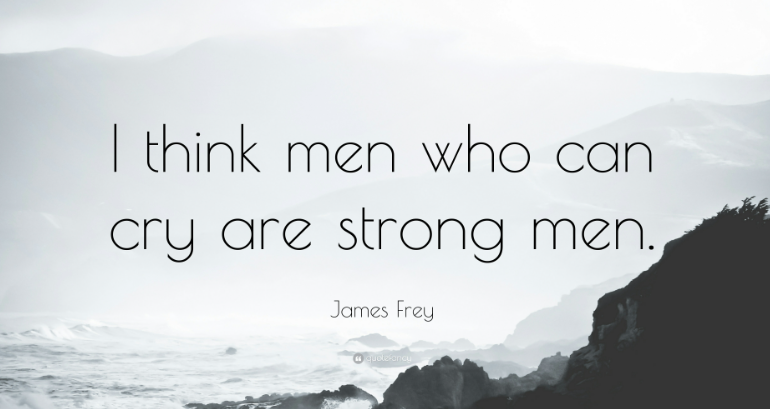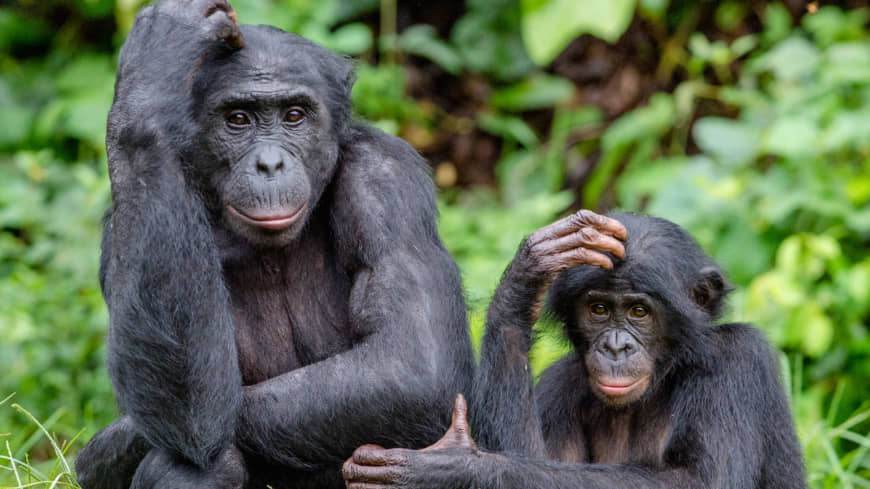The following was my English 112 APA Final which has been recently requested by several Master's level academics to be considered for use in their own papers. It is my sincere hope that you find it to be useful information for your future degrees. The paper was originally written in May 2013 so my apologies for any citations that are outdated. Naturally, if any of my premise is used in your work please cite me as able. Also, as a matter of personal pride, I received an A+ grade for the paper and in the class.
NOTE: This is my work and should be considered a reference point and is not available for redistribution. Thank You.
Drumming Therapy:
Recognizing the
Therapeutic Benefits of Drumming
For Children and
Adults with Autism Spectrum Disorder
Chris Hansen
8 May 2013
ENG 112
APA Topic Paper
Abstract
Music therapy,
in particular drumming therapy, has begun to see a heightened level of
acceptance as an established and effective therapeutic treatment for a myriad
of physical and psychological disorders. In recent years, drumming therapy has
received recognition as an effective treatment for persons diagnosed with
Autism Spectrum Disorder (ASD), Aspergers Syndrome, and other pervasive
developmental disorders as presented in the Diagnostic and Statistical Manual
of Mental Disorders, fourth edition, Text Revision (DSM-IV-TR, 2000) definition
for ASD (ASD. 2012). As a therapeutic exercise for Autistic individuals on a
regular basis drumming therapy has the potential to increase communication
between children and adults with the disorder with not only their families but
also with the greater society as a whole.
In an attempt
to understand the benefits of drumming as a respectable treatment modality it
is important to address certain questions:
·
How is music therapy
useful in regard to the treatment of persons with mental and developmental disabilities
such as those associated with ASD?
·
How is drumming
therapy useful to persons with an ASD diagnosis?
·
What is the
connection between the healing benefits of drumming therapy and the use of the
drum in indigenous tribal customs worldwide?
· Can drumming therapy be used as a treatment to
strengthen cognitive development as it applies to persons with ASD?
How is music therapy useful in regard to the treatment of persons
with mental and developmental disabilities such as those associated with ASD?
According to Aldridge (1994), music has a profound effect on mentally handicapped individuals with numerous benefits including: “the arousal of sensory processes” and contributing to memory recall. In addition, the use of music therapy on behalf of children with multiple disabilities, such as ASD and related disorders, provides much-needed sensory stimulation in a safe, fun, enjoyable environment that allows the ASD diagnosed individual to engage in the activity on there own terms. It is also noteworthy to state that music needs no scientific analysis to be used immediately as a valid therapeutic treatment (Aldridge 1994).
Music alone helps
to increase self awareness and feelings of adequacy in most people. It can even
lighten stress and has been proven to lower blood pressure (Chafin, Roy, Gerin
& Christenfeld 2004).
As a
therapeutic method music therapy can also be used to promote those same
feelings of adequacy in groups. Drumming therapy, one of many different
treatment modalities of music therapy, reduces tension, eases anxiety and
stress, promotes social interaction, and according to Drake (2009) “drumming
therapy also provides a sense of connectedness with others” and increases
interpersonal interaction which tends to be an obstacle for most individuals affected
by ASD.
How is drumming therapy useful to persons with an ASD diagnosis?
Specific to
ASD and related disorders, music and drumming therapy is less intrusive than
direct human interaction therapies. Drumming therapy is non-threatening and
allows the individual with ASD to engage in a very personal activity and in the
same moment introduces a way for the same person to engage with another
individual (or several people) indirectly. This indirect engagement in turn
endorses a secondary opportunity to promote direct communication with the other
individuals participating due to the fact they are drumming together and as a
result have something immediately in common. The commonality of drumming
therapy as a group activity promotes a camaraderie in all people not only the
individual with ASD.
According to Teresa
Hansen (Personal Communication, 2013), a long time drummer, mother and wife to
individuals with ASD, and a former Direct
Support Associate in a group home setting for dual-diagnosed individuals with
ASD and other disabilities; “One of the activities we encouraged most…was with
percussion instruments, drums, shakers, etc. The residents enjoyed this
activity resulting in less negative behaviors and cooperation between the
residents like no other activity would do.”
What is the connection between the healing benefits of drumming
therapy
and the use of the drum in indigenous tribal customs worldwide?
According to Drake (2009):
Drum therapy is an ancient approach that uses rhythm to promote healing and
self-expression. From the shamans of Mongolia to the Minianka healers of West
Africa, therapeutic rhythm techniques have been used for thousands of years to
create and maintain physical, mental, and spiritual health. Current research is
now verifying the therapeutic effects of ancient rhythm techniques.
Drumming therapy, as a long accepted music therapy and as well as an ancient community driven healing practice, has the much needed attributes to bring the individual into the forefront and strengthens the personal interest in being a part of more than just ones self. This remains extremely important in regard to individuals with ASD to increase communication opportunities. While it is certain that the Autism Spectrum has many different characteristics and not every individual with the disorder possess all of these, one of the more evident and relatively common features is the tendency for the individual to isolate. Drumming therapy can counteract this tendency and can also promote an increased interest in future group activities including drumming therapy itself. The increase in self-esteem and self-awareness that goes hand-in-hand with drumming can produce several positive side effects. The individual may become more interested in the drumming therapy activity due to the sheer enjoyment of the action of drumming. As Hansen (Personal Communication, 2013) states: “…it’s (drumming) an energy that feels good its happiness communicating with the people around you. I've never seen anyone sad in a drum circle…everyone is in harmony with the people around them creating something beautiful and that makes everybody feel good”. This “feel good” emotional intensity and heightened awareness that comes along with the feeling of elation that drumming initiates is perhaps one of the most common similarities between therapeutic drumming and indigenous drumming in native villages worldwide.
Can drumming therapy be used
as a treatment to strengthen
cognitive development as it
applies to persons with ASD?
As
previously noted ASD often exhibits as an anxiety disorder especially in regard
to socializing with others. ASD often demonstrates in social settings as
behaviors that seem odd, intrusive, and are often misinterpreted by individuals
that do not have ASD which in turn tends to ostracize those that do have ASD.
One approach that seems to provide some recognizable positive result toward a
decrease in inappropriate behavior is drumming therapy. The reason is simple; drumming
helps with increase attention and impulse control, and strengthens decision-making
skills (Moore.2011). Drumming not only helps with cognitive skills it also has
positive attributes in regard to socialization. Drumming usually occurs in a
group setting and individuals within the group play together; sometimes in a
full on musical jam, sometimes following a leader. This working together and
follow the leader type dynamic reinforces social skills such as taking turns
and being part of a group.
Conclusion
Drumming therapy, and as well music therapy in
general, is an extremely useful technique which can have, and has been proven
to have, many beneficial characteristics ranging from treatment for ASD and
other similar disorders to personal edification to group drumming toward
healing. Drumming spans the globe and has been part of every culture known to
man and has been made use of in similar ways within each of the cultures known.
Is it any surprise that drumming therapy has found its way out of the ancient
tribal customs and in to our modern day use? The use of drumming as a
therapeutic treatment with individuals with ASD is somewhat young however the
modality is being recognized and recommended throughout the therapeutic and
medical professions. As this type of music therapy begins to become more main
stream and the healing effects of drumming are felt across the cultural divides
we may eventually begin to see a strengthening of spiritual camaraderie as
well.
Works Cited
Music therapy for adults and children is of vital importance in the hospital atmosphere and with children with Autism Spectrum Disorder.
Autism Spectrum Disorder (ASD) (2012). In Queensland Department of Education, Training and Employment . Retrieved May 8, 2013, from Google.
Provides an umbrella definition for Autism Spectrum Disorder
Drake, M. (2010). Drum Therapy. In Shamanic drumming. Retrieved May 8, 2013, from Google.
Drum Therapy ~ Reduces tension, anxiety, and stress/ Helps control chronic pain/ Boosts the immune system/ Produces deeper self-awareness/ Creates a sense of connectedness with self and others/ Provides a medium for individual self-realization
Interview
Most
research in regard to Drumming and Music therapy does not present personal
accounts from family members and caregivers. The following interview gives a
more in depth detail of the personal point of view from an individual with
family members with Autism Spectrum Disorder (ASD). As well this individual
also has some experience in a semi-professional role as a caregiver for Autism
clients with dual-diagnosis.
The following interview is in regard to the paper: Drumming Therapy: Recognizing the
Therapeutic Benefits of Drumming For Children and Adults with Autism Spectrum
Disorder presented May 8 2013. This is a personal interview with Mrs.
Teresa Hansen, and avid drummer, wife of someone with Aspergers, and the mother
of a 4 year old son with ASD.
Q. How long have you been drumming?
A. My first exposure to djembe and hand drumming was
given by Circe Santaniello at a workshop in Boone North Carolina in the spring
of 2004.
Q. What is a djembe?
A. A djembe is an African drum made of wood with a
goatskin head, they come in many
sizes; the larger the drum the deeper the tone.
Q. What is the traditional use of the
djembe drum?
A. African villagers use them during ceremonies; religious
or rites of passage (marriage, death, birth), or healing to draw the spirits or
to put the village in unison toward a desired goal.
Q. You stated that the drum was used to
unite the villagers toward a goal or
purpose, have you ever witnessed drumming as a unifying practice?
A. Yes, I have seen people meet in drum circles from
very different walks of life and become lifetime friends from the unity and
camaraderie that they felt in the drum circle. In a drum circle everyone is
collaborating with their own beat resulting in music that lifts the spirit.
Q. What do you mean by “lifts the
spirit”?
A. For some it’s a trance, it’s an energy that feels
good its happiness communicating with the people around you. I've never seen
anyone sad in a drum circle. For that space and time everyone is in harmony
with the people around them creating something beautiful and that makes
everybody feel good.
Q. What do you yourself get out of
drumming that is therapeutic for you specifically?
A. I am an introvert and I am extremely shy. I lose
that shyness when drumming with a group. I’m not just in the back observing I’m
upfront w/ everyone. I realize that without me the music would be different I
have a reason to be there.
Q. Considering your husband and your
son, who are both individuals with different levels of ASD. What have you
witnessed that shows evidence of the therapeutic benefits of drumming where
they are concerned?
A. For my son (4 years old with ASD) it is the only
group activity that he will consistently join and he participates with the
others. Drum rhythms are also calming for him the music puts him in a good mood which allows
for better communication and less melt downs (tantrums). For my husband, it
increases focus. It (drumming) is one of the few things he can do for extended
periods of time and stay interested. It gives (him) a chance for nonverbal
communication and acceptance (of him) by a group of others. It gives him a
wonderful feeling of accomplishment (IE feeling good about himself) at the end
of a long energetic drumming session. That is a huge benefit for him on a
therapeutic level.
Q. You mention therapeutic benefit; do
you have some experience working with mentally challenged and developmentally
delayed individuals that would allow you a semi-professional understanding of
such benefit?
A. Yes, I worked for 7 years as a Direct Support
Associate at a group home for wheelchair bound adults who also had Mental Retardation,
Mental Illness, and/or Developmental Delay diagnosis. During that time I worked
with 4 men with ASD and also worked for 6 month in home with an adolescent male
with ASD.
Q. While working with this population
did you ever have an opportunity to see first hand the benefits of music,
rhythm, or drumming therapy as it affected them?
A. Yes, in the group home several of the residents
had behavior and reward protocols that included preferred music therefore being
therapeutic use of music. One of the activities we encouraged most in common
living areas was with percussion instruments, drums, shakers, etc. The
residents enjoyed this activity resulting in less negative behaviors and
cooperation between the residents like no other activity would do.
Q. Would you recommend drumming or
music/rhythm therapy to other families with
ASD characteristics and as well would you recommend this modality to
other group homes that specialize in the population you worked with...and why?
A. Quite frankly I would recommend drumming to
anybody. The collaboration fosters camaraderie the feeling of being a part of
something and sense of pride in the music that is crated. The rhythm soothes
but also builds energy at the same time. I would definitely recommend it to
group homes even with physical challenges like cerebral palsy, partial paralysis
muscular atrophy. Just about anybody can bang on a drum. It is doubly therapeutic
for people with physical challenges by encouraging them to move when they normally wouldn't. Everybody gets something
good out of being part of a drum circle.









